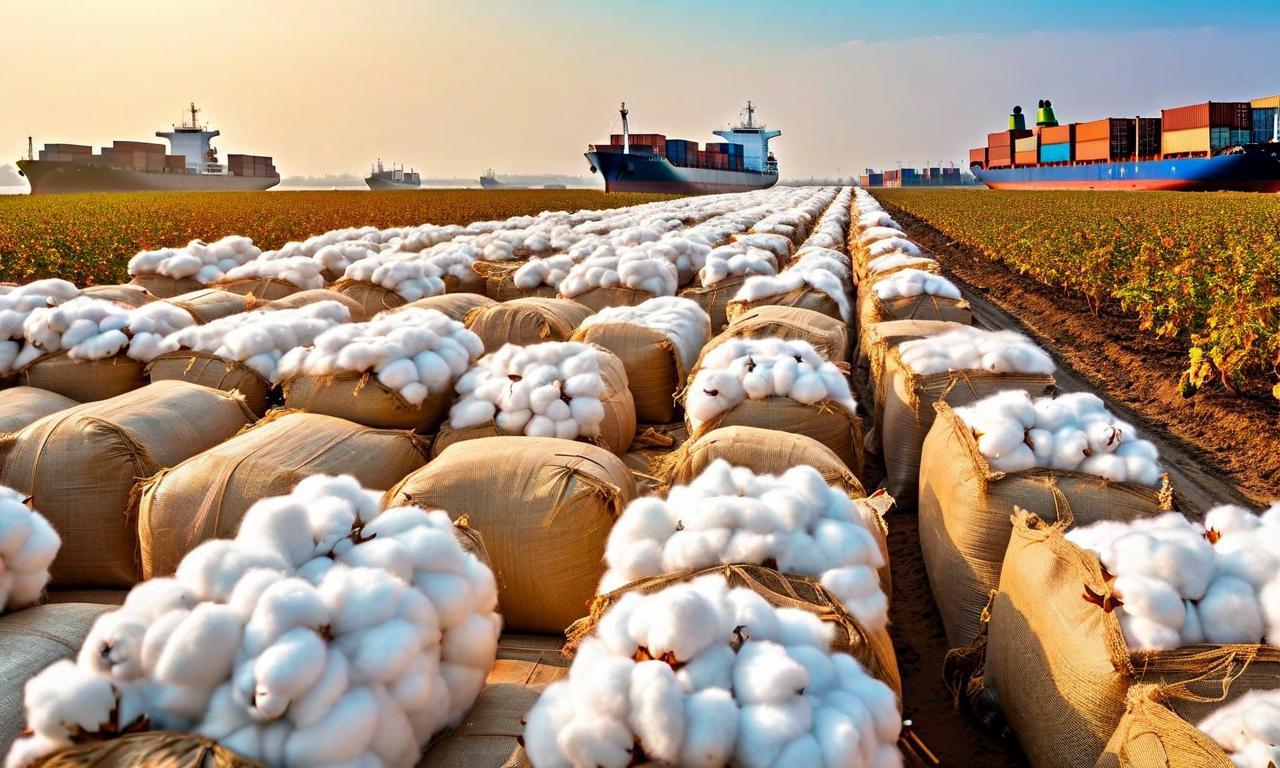India Extends Cotton Import Duty Exemption Through 2025
The Indian government has extended the exemption on cotton import duties until December 31, 2025. This decision allows duty-free cotton imports, potentially benefiting textile manufacturers with lower raw material costs and more sourcing options. The move aims to enhance India's competitiveness in the global textile market but may pose challenges for domestic cotton producers facing increased competition.

*this image is generated using AI for illustrative purposes only.
In a significant move affecting the textile industry, the Indian government has announced an extension of the exemption on cotton import duties. This policy decision will keep cotton imports duty-free until December 31, 2025, providing a long-term outlook for cotton importers and textile manufacturers.
Impact on the Textile Industry
The extension of duty-free cotton imports is expected to have far-reaching effects on various stakeholders in the textile sector:
Cotton Importers: The policy continuation allows importers to bring cotton into the country without additional tariffs, potentially leading to more competitive pricing in the domestic market.
Textile Manufacturers: With duty-free access to imported cotton, Indian textile manufacturers may benefit from a wider range of sourcing options and potentially lower raw material costs.
Domestic Cotton Producers: The extended exemption could pose challenges for local cotton farmers, as they may face increased competition from imported cotton.
End Consumers: The policy might contribute to stabilizing or potentially reducing costs in the textile supply chain, which could benefit end consumers of textile products.
Long-term Market Implications
The government's decision to extend the exemption for nearly two years signals a commitment to supporting the textile industry's access to global cotton markets. This long-term approach provides clarity for businesses planning their operations and investments in the coming years.
Textile industry experts suggest that this move could enhance India's competitiveness in the global textile market. By ensuring access to a variety of cotton sources, Indian manufacturers may be better positioned to meet international demand and quality standards.
Balancing Act for Policymakers
The extension of the import duty exemption highlights the delicate balance the government must maintain between different sectors of the economy. While the policy supports the textile manufacturing sector, it also necessitates measures to protect and support domestic cotton farmers who may face increased pressure from international competition.
As the policy unfolds over the next few years, industry watchers will be keen to observe its impact on domestic cotton production, textile exports, and the overall health of India's textile sector. The government's approach to managing these various interests will be crucial in determining the long-term success of this policy decision.





























